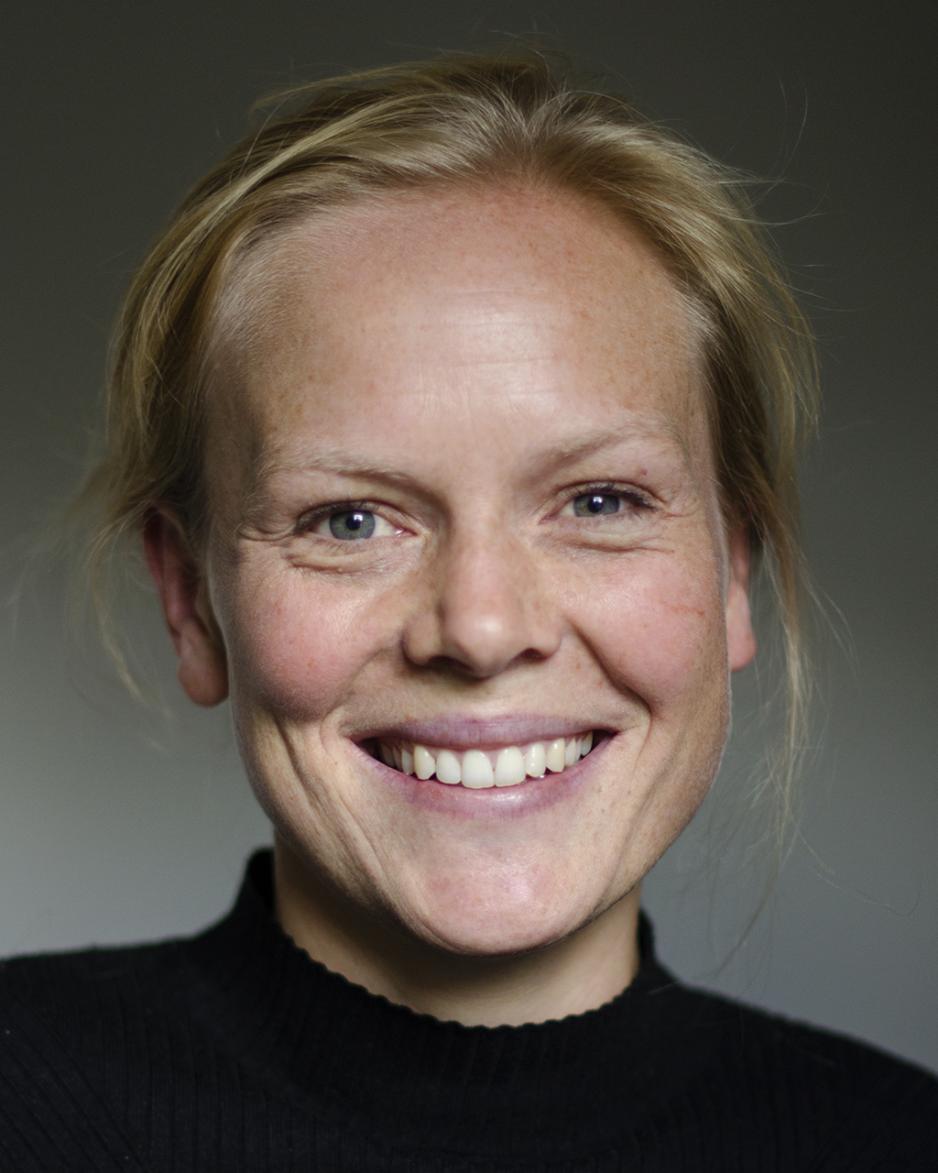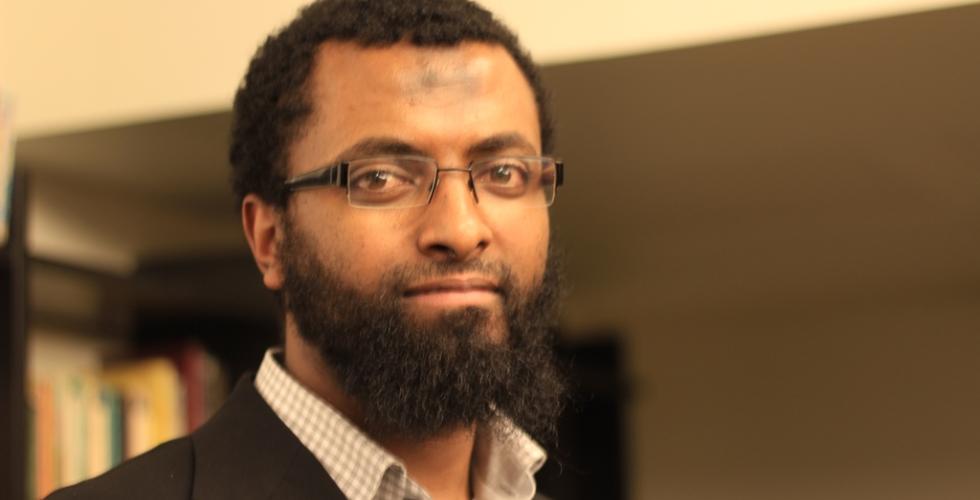Children of immigrants stigmatized for choosing prestigious studies
The children of immigrants are often met with the attitude that their choice of education has been dictated by social control. On the contrary, these sons and daughters are intent on making their own choices, says researcher Marianne Takvam Kindt.
“Many of these individuals experience misgivings on the part of their fellow pupils and students, advisors and seminar leaders when they do well in the educational setting. This occurs early in their educational track as well as later at university,” says Marianne Takvam Kindt.
In May, Kindt defended her doctoral thesis on children of immigrants who choose prestigious higher educational tracks in Norway. She has examined how some of these students experience the majority population’s views on their choice of education as well as how the students themselves explain their choices.
“For the most part, my thesis centres on the offspring’s experience of inclusion and how they adapt to their surroundings,” says Kindt.

Low-income families, highly educated children
Her thesis, which consists of three articles, is based on interviews with 28 students in their early 20s. Most of them were born in Norway and have Asian or African parents who moved to Norway as adults.
In Norway, children of immigrants are overrepresented in certain fields of study, such as odontology, pharmacology, medicine, engineering, economics and business administration. A large proportion of Kindt’s interviewees are pursuing these professional studies, while some of them are studying business fields such as finance.
“This group of interviewees is heavily skewed by design. My intent was to focus on success stories and what characterizes them,” says Kindt.
Her thesis takes a critical look at stereotypes and prejudices about children of immigrants. But that was not the starting point for the project.
“My starting point was very similar to what I end up criticizing, i.e. what researchers often describe as a paradox: that many children of immigrants perform so well in the educational system despite growing up in low-income families.”
Many more of the immigrants’ offspring who complete upper secondary school go on to pursue higher education than in the majority population, regardless of social background. Thus, the literature is full of researchers who point out that conventional sociological theory about how class background influences educational choices is inadequate, says Kindt.
Misconception that social control fuels immigrants’ drive
“There are many who believe we need to look at a specific culture among immigrants to understand this immigrant drive,” says Kindt. She continues:
“A recurring narrative in the media and research literature is that the children of immigrants choose to pursue prestigious educational tracks because of pressure or social control. Their choices are seen as being based on their parents’ cultural framework, which emphasizes patriarchal structures, respect for authority and traditional gender roles.”
However, Kindt found indications that class background may have played a larger role in the group’s educational choices than she originally believed.
“Although all the interviewees had parents in low-skilled jobs or occupations that did not require a high level of education, most of the parents had a far higher social status in their home country.”
Many of the interviewees were brought up with what researchers have defined as “middle-class parenting” in studies of the majority population. They described an upbringing in which the parents were very involved in their child’s daily routines, both in schoolwork and extra-curricular activities.
“Parents of this kind often set goals for their child’s future and follow up through an organized, adult-steered childhood. The families also have a culture for conversation and discussion,” says Kindt.
Among Kindt’s interviewees, those parents who had held higher status in their homeland had more time and better linguistic skills. Compared to the parents with a relatively low status in their home country, these parents were better equipped to help their children.
“The middle-class parents have often learned Norwegian well and have stronger ties to the labour market. Although they may have low-skilled occupations, they have jobs with regulated working hours.”
From immigrant drive to middle-class drive
These findings gave Kindt a new perspective on the “immigrant drive”. The significance of a specific immigrant culture has perhaps been exaggerated, she believes.
“We see that class-specific resources that the parents possessed when they immigrated do not necessarily disappear when their income drops. Perhaps what we are witnessing is not a case of major social mobility, but rather a reestablishment of the parents’ status from their home country,” says Kindt.
She stresses that these findings do not mean that cultural causes are not important or that social control does not exist.
“The point is that when we speak of the immigrant drive, we lump everyone into the same group, when in reality their individual paths to university can be very different. The parents had a life before coming to Norway that influences the entire family’s life here,” she says.
“We don’t define strict discipline and strong parental involvement as social control in the majority population. But social control can exist in any middle-class family,” Kindt adds.
Nonetheless, she believes there is a need for more research into how culture and class affect the educational choices of the children of immigrants.
“Why did you choose a typical minority field?”
Prejudices and stereotypes about the educational choices of the children of immigrants are not just found in the literature or the media. A number of Kindt’s subjects reported confronting questions such as, “Why did you choose a typical minority field?”
These questions have been asked by fellow students and seminar leaders alike, says Kindt. Earlier in their educational tracks, the interviewees encountered comments from school advisors such as, “Shouldn’t you choose something less ambitious given your background?”
“My interviewees told me they worked hard to get where they are, that they are well integrated and have done all the right things. And yet they are still met with misgiving –people who think that they’ve made the right choice but for the wrong reasons,” says Kindt.
“To put it more simply, to avoid these attitudes they would need to choose a field such as art history or some other humanities subject. That choice might be seen as being more independent.”
Must make untraditional choices to prove independence
The students’ own views around their educational choice differ markedly from narratives about social control.
“They speak of taking individual choices, for instance having always loved science or knowing from a young age they wanted to be a doctor. They also state that they have never been pressured,” says Kindt.
“At the same time, previous studies indicate that many do experience pressure.”
During the interviews the students said they feel stripped of their autonomy and individuality by the institutions and by individuals representing those institutions alike.
“As a result, these young people see themselves as distanced from their social surroundings,” says Kindt.
According to Kindt, the students reclaim their autonomy by telling their story, which may help to mitigate the stigma of just being a victim pushed into decisions by their family.
“But they are not necessarily using this narrative in a calculated way. There may be many reasons for why my interviewees invoke independence and freedom when they talk about their educational choices, and I don’t have data to draw any definitive conclusions here,” she says.
“Moreover, their accounts of free choice fully reflect the norms and values that children are taught in the Norwegian school system.”
Applies more widely to women
The cultural explanation is particularly applied when discussing the educational choices of immigrants’ daughters, in the research literature as well as in the media. One myth is that the daughters of immigrants do so well in school because they are kept home by their parents instead of going out enjoying free time, explains Kindt.
“Many are concerned about the fate of these immigrant daughters once they complete their education: Will they just have children and stay at home?”
Some of the interviewees have been subjected to insulting comments from classmates.
“One interviewee recounted a classmate asking her, ‘What’s the point of this if you are just going to be married off?’” This stereotype is about both gender and ethnicity, says Kindt.
Researchers are divided into two camps. One argues that education is liberating because it leads to meeting people of different backgrounds, makes one question one’s own upbringing and traditions, and raises the likelihood of marrying outside one’s ethnic or religious group.
The other camp argues that education for immigrant women is mainly about laying a good foundation – becoming a good mother and achieving status in the family. Their pursuing an education can thus be interpreted as the result of doing what their family and network expect of them.
Want to own their story
The women that Kindt interviewed do not paint a black-and-white picture.
They argue that it is fully possible to reconcile full freedom and independence with a focus on family and giving consideration to their parents’ wishes, says Kindt.
“They are very clear about not wishing to be stay-at-home mothers, for example. However, this does not mean that they don’t value the family’s advice when it comes to whom they should marry. They want a spouse with the same background, someone their parents have helped to find.”
The women interviewees are able to make arranged marriage, which they call “introduced marriage”, compatible with liberal values.
“They say they can always say no to a proposed partner, and that it is important not to have children straightaway. They also support paternity leave and say that men need to accept that women have a career.”
Many find it liberating in itself that their parents are going to help them to find a boyfriend. This allows them to concentrate their energy on fulfilling their career plans. According to Kindt, the women report that it saves them time.
“This is a very positive narrative of how the majority and minority cultures can go hand-in-hand. But it is not always so simple. Many of the women express concern about what would happen, for instance, if they were to fall in love with someone from the “wrong background”.
This generation of immigrant children is still young, and thus there is insufficient information about what happens after they have completed their education.
“One thing that is certain is that immigrant daughters have jobs far more often than their mothers, but they still lag slightly behind the employment rates of majority women. This difference is often ascribed to traditional patterns of gender roles.”
Kindt has attempted to shed light on stereotypes and how the women students deal with them.
“They report that even though they are well on their way to becoming super-integrated in structural terms, it does not mean they have to give up all their traditions. In this way they take ownership of their own stories.”
Translated by Darren McKellep and Carol B. Eckmann.
Marianne Takvam Kindt defended her doctoral thesis Beyond heritage and acculturation. Accounts of upbringing, choices, and plans from children of immigrants in prestigious higher education in Norway at the University of Oslo’s Faculty of Educational Sciences on 2 May 2019.
Kindt has a master’s degree in sociology and a PhD in education, and works as a researcher at the Fafo Research Foundation.


